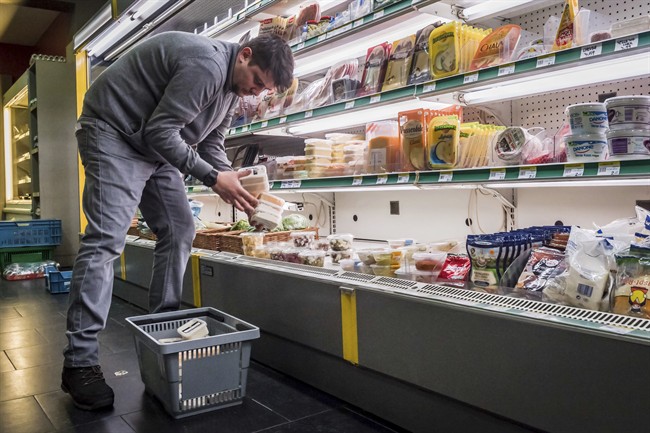The sheer waste of food had been bothering teacher Marijke De Jongh for so long that two years ago she set up a pop-up restaurant to serve perfectly good groceries and meat that were approaching their expiry date.

She followed it up with an app that brings thousands of consumers to retail shops were they can buy food closing in on its sell-by date.
READ MORE: Food waste at record levels as other Canadians go hungry
Still, the efforts of a small group of conscientious consumers are no match for the masses that still waste food from farm to fork.
The European Court of Auditors on Tuesday chided the European Union’s executive branch in a report, “Combating Food Waste,” that decried the bloc’s lack of effort in reducing the food waste. It estimated the EU wastes 88 million tons of food a year for a population of 510 million.
“The Commission is not combating the food waste effectively,” said ECA member Bettina Jakobsen, noting a lack of strategy and inspiration being used to tackle the problem.
The report said more efforts should be made all along the food chain and special precautions should be taken when setting farm policy to make sure that less produce is discarded. An EU study, however, shows about half that waste can still be tied to households, not policy.
The ECA also recommended making food donations easier, since they are still mired in legal and tax issues that sometimes become a disincentive for food producers to give food away. It said with better EU regulations that could be turned around.
“The Commission is not combating the food waste effectively.”
At the same time, De Jongh continues to try to make a difference at a local level in Antwerp, northern Belgium. After her pop-up experiment in 2015, she is planning a permanent Rekub eatery now.
“We have to keep this moving and put it on everyone’s radar,” she said.
- Canadian man dies during Texas Ironman event. His widow wants answers as to why
- Several baby products have been recalled by Health Canada. Here’s the list
- ‘Sciatica was gone’: hospital performs robot-assisted spinal surgery in Canadian first
- Do Canadians have an appetite for electric vehicles? Experts are divided







Comments